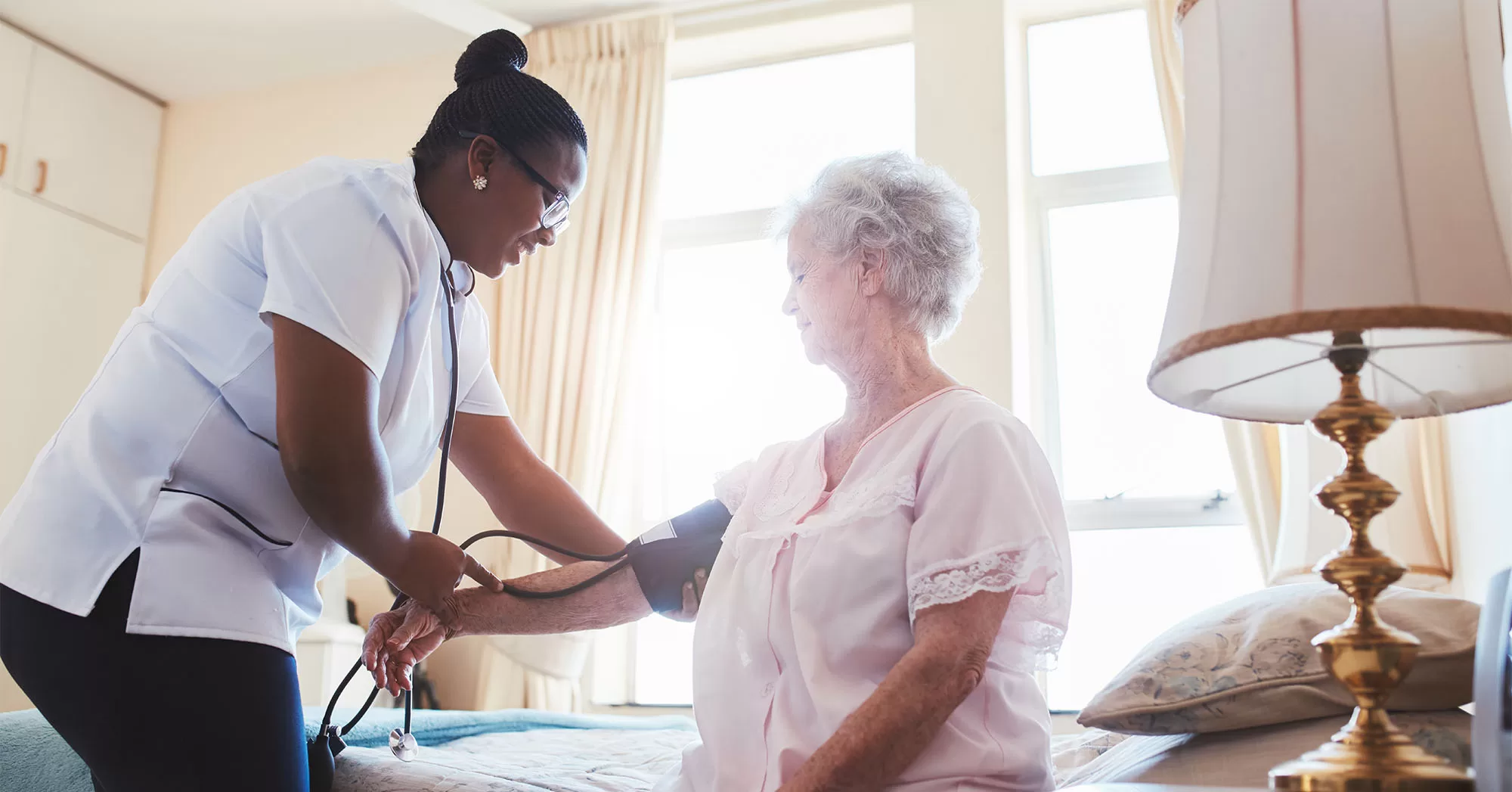Your loved one or client recently experienced a stroke or received a dementia diagnosis. While seeing them in the hospital may have been difficult, you were likely reassured by the presence of nurses, doctors, and other skilled providers who were there to care for your loved one. Now that they’re coming home, you’re facing an entirely new set of questions and challenges. How will you keep your loved one or client safe and comfortable at home following a stroke or dementia diagnosis? How will you manage your own self-care and keep up with other household routines while also attending to their needs? We understand that the journey you are embarking on can feel overwhelming at times. But try not to let yourself worry too much; you are not alone in this, and True Care is here to offer you guidance, support, and practical tips to make this transition as smooth as possible.
Understanding the Challenge: Preparing Yourself for the Reality
First and foremost, it’s essential to acknowledge the emotional toll this situation can have on caregivers. You may feel a mix of emotions – love, concern, and perhaps even fear. It’s entirely natural, and you should never hesitate to seek support when needed, whether from friends, family, or professionals.
Remember, you are not alone in this journey.
Creating a Safe Haven:
Ensuring that your home is a safe and comfortable place for your loved one to recover and move forward should be a top priority for you when preparing to receive your loved one or client at home. Here are some simple steps to help you create a secure environment:
- Remove Hazards: Take a walk through your home and identify potential hazards such as loose rugs, slippery floors, or sharp objects. Make necessary adjustments to eliminate these risks.
- Install Handrails and Grab Bars: Installing handrails and grab bars in key areas like the bathroom and stairways can provide much-needed support for your loved one. For those facing additional mobility challenges, you may wish to install ramps, assistive stair lifts, and other modifications to make the home safe and comfortable not only for the person receiving care, but for their caregiver(s) as well!
- Improve Lighting: Adequate lighting can prevent falls and improve navigation. Consider installing brighter bulbs or nightlights in darker areas of the home, and along frequently-traveled paths throughout the house, for example between the bedroom and bathroom.
- Organize Medications: Keep a detailed medication schedule and store all medications in a secure, yet easily-accessible place. It can also be helpful to set reminders in your phone, or with the aid of post it notes around the house (or a combination of the two) if you struggle to manage the medication regimen.
- Arrange Furniture Thoughtfully: Rearrange furniture to create clear pathways, making it easier for your loved one to move around without obstacles.
- Homecoming Celebration: Make the homecoming a celebration! Decorate the space with warm and welcoming touches. Familiar photos and comforting colors can create a soothing atmosphere. Favorite foods, games, activities, and songs can make your loved one’s homecoming a momentous occasion. Reassure your loved one that they have support, and that you’re glad to be welcoming them back into the home.
Emotional Well-being:
Caring for someone with a stroke or dementia can be emotionally draining at times. Here are some ways to prioritize your own well-being:
- Self-Care is Non-Negotiable: Remember, taking care of yourself is not selfish; it’s necessary. Find time for activities you enjoy, be it reading, walking, or simply relaxing with a cup of tea. Remember to pay attention to the basics like sleep, hygiene, and nutrition, as these are often the first things to go when caregiving demands increase.
- Lean on Your Support Network: Don’t hesitate to ask for help from friends or family members. They can assist with caregiving tasks or simply provide a listening ear.
- Stay Educated: Knowledge is power. Learn about the condition your loved one is facing. Understanding the challenges can help you adapt and provide better care.
- Join Support Groups: There are numerous support groups for caregivers in similar situations. These communities can offer invaluable emotional support and practical advice.
- Seek Professional Help: If you find yourself overwhelmed, consider speaking with a therapist or counselor. They can provide guidance and coping strategies based on your situation. If you find yourself struggling with persistent feelings of sadness or hopelessness, it’s a good idea to consult a professional for additional support. This is NOT a sign of personal weakness, but one of strength and character!
Effective Communication:
Effective communication is vital during this transition. Here are some communication tips to enhance your relationship with your loved one:
- Be Patient: It’s normal for stroke or dementia patients to have difficulty expressing themselves. Give them time to communicate their needs and thoughts.
- Use Simple Language: Keep your language clear and straightforward. Avoid complex sentences or abstract concepts.
- Active Listening: Pay close attention to what your loved one is saying. Show empathy and understanding through your responses.
- Non-Verbal Cues: Remember that communication isn’t just about words. Pay attention to body language and facial expressions.
- Routine and Familiarity: Establishing routines can help reduce anxiety. Stick to schedules for meals, medications, and activities as much as possible.
Creating Moments of Joy:
Despite the challenges, it’s important to find moments of joy and connection with your loved one or client. Engage in activities that bring happiness and comfort:
- Music Therapy: Music has a powerful effect on emotions. Play their favorite songs and perhaps even enjoy a dance together if their mobility and balance allow.
- Art and Crafts: Engage in simple art or craft activities that stimulate creativity and provide a sense of accomplishment.
- Nature Outings: Spending time outdoors, even if it’s just a short walk in the garden, can be refreshing and mentally stimulating.
- Memory Boxes: Create memory boxes filled with mementos and photos that can spark conversations and memories to reminisce over.
- Celebrate Small Wins: Recognize and celebrate small achievements and milestones in their recovery journey.
Remember, caregiving, particularly following a stroke or dementia diagnosis, is a journey that requires both patience and resilience. You are making a tremendous difference in the life of your loved one. Keep in mind that it’s okay to ask for help, take breaks, and prioritize your own well-being. Together, we can make this transition smoother and more comfortable for both you and your loved one.
If you are curious about receiving additional support for yourself or your loved one following a stroke or dementia diagnosis, True Care can help. We provide Caregivers for clients of all medical backgrounds and walks of life, and would be more than happy to speak with you about how our services can help make your life that much easier.









